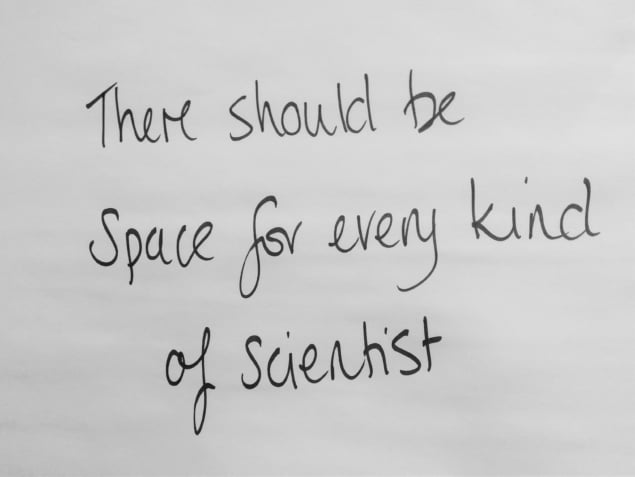
We are hearing more and more about the impact that poor mental health has on our working lives and environment and a recent review commissioned by the Royal Society and the Wellcome Trust highlighted the high incidence of mental health problems amongst researchers in the UK.
So as we start Mental Health Awareness Week 2018, last Friday’s one-day workshop exploring mental-health issues in the science, engineering, technology and mathematics (STEM) research environment was very timely.
The meeting was held at the Royal Society of Chemistry (RSC) in London, having been organized by the RSC with support from the Royal Society, the Royal Academy of Engineering, the Royal Society of Biology, the Wellcome Trust and the Institute of Physics, which publishes Physics World.
Opening the workshop, Susan Guthrie of RAND Europe, who carried out the review, said that one third of researchers in the UK reported they experienced unacceptable levels of stress and over three-quarters worked more than 48 hours per week. Alongside this, over half reported some degree of bullying and harassment. Academic burnout was on a par with other high-stress occupations such as teaching and social work. Guthrie estimated that the impact of the loss of productivity and talent to the UK’S research and science based through not addressing these issues ran to hundreds of millions of pounds per year.
Bringing a very personal perspective to the day was Joanna Waldie, a semiconductor-physics postdoc at the University of Cambridge, who talked courageously about her own experiences of coping with mental-health conditions. Dealing with isolation, setbacks in research and rejections from grant funders is all part of being a researcher but is particularly challenging when experiencing episodes of poor mental health. As Waldie reminded us, “It’s okay to take time out to look after your mental health.”
My invisible battle
The third speaker was Sara Shinton, head of researcher development at the University of Edinburgh, who spoke about the challenges of working across a very complex institutional structure and getting the right messages across. She started by acknowledging that the academic research environment is challenging, that years of uncertainty takes its toll, and that the fragmentation of academic time all erode well-being. By addressing mental-health issues openly, the university wanted to encourage everyone to talk about their mental health, which would ultimately make it easier for people to access support. But one of the biggest challenges was engaging everyone to talk about these issues. “This could be the next revolution… having scientific people at scientific conferences talking about mental health” said Shinton.
During the workshop session, many ideas emerged about how the professional bodies can support everyone working in STEM to develop an environment that nurtures wellbeing, supports those who have mental health conditions and challenges stereotypes. Promoting mental health awareness week is just the start of the journey.




